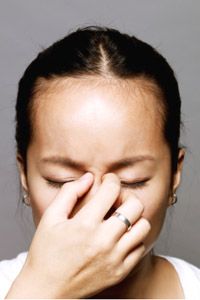The first line of treatment for horse allergies, as for any other allergy, is to prevent and avoid contact with the allergen. In the case of horses, an allergic reaction may not be limited to direct contact with the horse, but may also be triggered by being in a barn or in contact with horse gear such as a saddle, ropes, brushes, or clothes. Horse dander can stick to clothes and hair and cause allergies, so if you come into contact with a horse, wash your hair and clothing to get rid of the allergen. People who work with horses on a regular basis can also develop an allergy to horses from constant exposure. If you have other allergies, such as to cats, dogs, dust or pollen, you may also be allergic to horses. Be careful when you first come into contact with a horse, especially if you are asthmatic. Horse allergies can trigger an asthma attack, sometimes with severe reactions that require medical treatment.
Allergy symptoms can start from 30 minutes to several hours after exposure to an allergen. Allergy medication, such as antihistamines and decongestants, in pill form or nasal spray can relieve symptoms, such as runny or stuffy nose, itchy and watery eyes, hives and rashes. Doctors can prescribe stronger medication if necessary. Testing for sensitivity to allergens can help to identify a horse allergy, so you can prevent symptoms by avoiding contact. If you suffer from severe symptoms or have contact with horses on a regular basis, consult your doctor to consider immunotherapy. Immunotherapy is long-term treatment with a series of allergy shots to desensitize to an allergen, and this may also be possible in the case of a horse allergy.
Advertisement
There may be an answer for people with horse allergies that don't want to give up on riding. The Curly Hair horse is a rare breed of horse with different hair and genetic make-up. Many people with allergies find that they do not react to these hypoallergenic horses.
Advertisement

